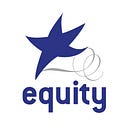THE BENEFITS OF MENTAL HEALTH FIRST AID TRAINING
Earlier this year performers Kathy Lepan-Walker and Sharon Davis completed Mental Health First Aid (MHFA) training with filmmaker, mental health advocate and accredited MHFA trainer Ben Steel. As our industry grapples with alarmingly high rates of mental health issues Kathy talks to Sharon about her most valuable learnings from the course and benefit it could bring to other performers and the community at large.
Kathy: Tell me a little about yourself.
Sharon: I grew up in country NSW and moved to Melbourne 14 years ago. I’m an actor/director/teacher and have been a member of Equity since signing my first acting contract in 2002. I am currently the President of the Victorian Branch of Equity and I have been part of the EWC (Equity Wellness Committee) since 2016.
K: How do you feel mental health awareness in the arts has changed during your career?
S: One of the most significant changes is that we are actually having conversations about mental health! Even five or 10 years ago, there wasn’t any meaningful and open conversation in green rooms, dressing rooms, rehearsal rooms, or training institutions about mental health and its impact on our industry and work. When I was at drama school there was almost this expectation or acceptance that an actor would be….what’s a good word?….“dysfunctional” and that being seen as a kind of “badge of honour”. Not that it was encouraged in any way, just assumed.
Aside from a more open conversation around mental health, another significant change is addressing the archaic notion that the best artists are the most tortured. A healthy mind and body is just as ripe for making great art or being a great artist.
K: What inspired you to complete the Mental Health First Aid Training?
S: In my position of leadership within MEAA, it was something that I felt I should and needed to do. I’ve also started teaching in the last couple of years so it’s invaluable to have that sort of training when working with young actors in training.
K: What was your biggest take away from the course?
S: Being really clear on how to recognise warning signs and what to look for. As performers we can be very instinctive and sometimes what we lack, because we are instinct based, is having really clear guidelines around emotion and behaviour. The course really lays out clearly how to spot the signs and symptoms which was invaluable. Lots of other things too, but that was really important for me.
K: How can we move towards these conversations becoming the norm?
S: Firstly, expanding on what our current OH&S protocols are so that they include a mental health component. This would include protections for workers in their contracts as well as venue and company inductions to include a mental health component. These inductions could cover things like identifying support persons or platforms, reporting protocols, and general information about health and wellbeing. The goal is to have the same ease of conversation and implementation around mental health as we do other safety or OH&S issues and for it to be part of the way we work and operate.
K: Are you interested in becoming a Mental Health First Aider for projects within our industry?
S: I did the training because I want to have the tools to be able to help in a crisis. However, we need to have further discussion around how this would work. Like physical first aid training, it’s made very clear that someone trained in Mental Health First Aid has a choice when to step in and administer support. You aren’t under any obligation to act and, if you do, the training teaches you to acknowledge and respect your own personal safety first before supporting someone else. I don’t think it’s appropriate for, say, and actor contracted to play a role in a production to then feel a pressure to take on this other role in an official capacity. The training is voluntary and the administering of help is voluntary also.
K: What benefit do you think this training would have for others?
S: I think this training is invaluable to our entire community at large, not just the performing arts community; everybody. It’s a really well crafted training program that helps to demystify a lot of mental health conditions and how to recognise when someone might be in crisis.
At the end of the day, the more we know, the better we are to support those in crisis and help manage circumstances to maybe help avoid reaching crisis point.
K: What is your vision for our industry around mental health?
S: Safety, acceptance, and support. If we are always coming from a place of safety, support, and acceptance we can’t really lose. We can still make mistakes, of course, but our focus on those three things can get us back on track.
Safety for all workers so that working with a mental health condition becomes just as acceptable as working with a physical condition. Also, safe work spaces that don’t create or exacerbate mental health issues.
Acceptance and willingness to embrace the diversity of the community at large so that we can better represent in the stories we tell. Part of that is embracing, understanding and accepting the wild and varied ways that mental health presents itself to us as human beings.
And support at all levels of the industry that is specific to our unique work places and work products.
Mental Health First Aid is the nationally accredited training for individuals that want to be able to effectively respond to mental health issues. You’ll learn how to:
· Recognise common mental health issues
· Provide initial help using a practical, evidence-based Action Plan
· Respond in a Mental Health crisis situation
Ben Steel will deliver several free MHFA courses later this year, both in person and online (opening up the availability of this opportunity to many around the country and in remote areas). If you’d like to attend one of these free courses when they become available and become an accredited Mental Health First Aider, please register your interest here.
Kathy Lepan-Walker is co-chair of the Equity Wellness Committee.

